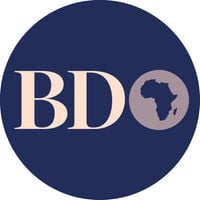
The National Treasury building in Nairobi. FILE PHOTO | NMG
Summary
- The country will have to appeal to rich organisations for either cheap credit or free grants to finance Kenya’s budget.
- Kenya wants to avoid raising more debt from overseas capital markets.
- Generally, Kenya has been overlooked by donors since it attained middle-income status in 2014 forcing the country to turn to Eurobond and syndicated loans and bilateral lenders like China.
The Treasury will appeal to rich foundations and trusts to help fund Kenya’s budget as part of the wider resource mobilisation to battle the Covid-19 pandemic.
It says in a November paper titled ‘Post Covid-19 Economic Recovery Strategy (ERS) 2020-22’ the country will have to appeal to rich organisations for either cheap credit or free grants to finance Kenya’s budget.
Kenya wants to avoid raising more debt from overseas capital markets, after a borrowing binge in recent years including Eurobond offerings, a package of Chinese loans and syndicated commercial loans.
The government was committed to bringing its debt, which has risen to above 68 per cent of gross domestic product, to a more sustainable level.
“A key measures of the ERS resource mobilisation strategy is expanding and diversifying the donor base to include more concessional credit from bilateral and multilateral donors such as Green Climate Fund, Climate Investment Fund, Adaptation Fund, international philanthropic organisations and other non-state actors thereby increasing the share of grants and concessional financing in Kenya’s total debt portfolio,” the Treasury said in the paper.
Philanthropic organisations such as Bill and Melinda Gates Foundation and Wellcome Trust, Bloomberg Philanthropies, Open Society Foundations, Ford Foundation, MasterCard Foundation, Google Foundation, Conrad N. Hilton Foundation, Carnegie Corporation of New York and IKEA Foundation do not lend directly to governments.
Instead, they work through multilateral organisations like the World Bank and African Development Bank or directly fund projects in beneficiary countries in line with their aid policies.
However, following the coronavirus pandemic, there has been calls to coordinate financial aid including channelling resources from foundations to help developing countries cope with the pandemic.
A survey by the Organisation for Economic Co-operation and Development (OECD) by end-April 2020 showed the foundations had already committed almost $491 million (Sh53.5 billion) as an immediate response to the COVID-19 crisis toward developing countries. The funds mainly target health projects.
Generally, Kenya has been overlooked by donors since it attained middle income status in 2014 forcing the country to turn to Eurobond and syndicated loans and bilateral lenders like China.
Kenya has been forced to confront the ballooning public debt after embarking on a borrowing binge in the past year to fund infrastructure projects.





No comments :
Post a Comment